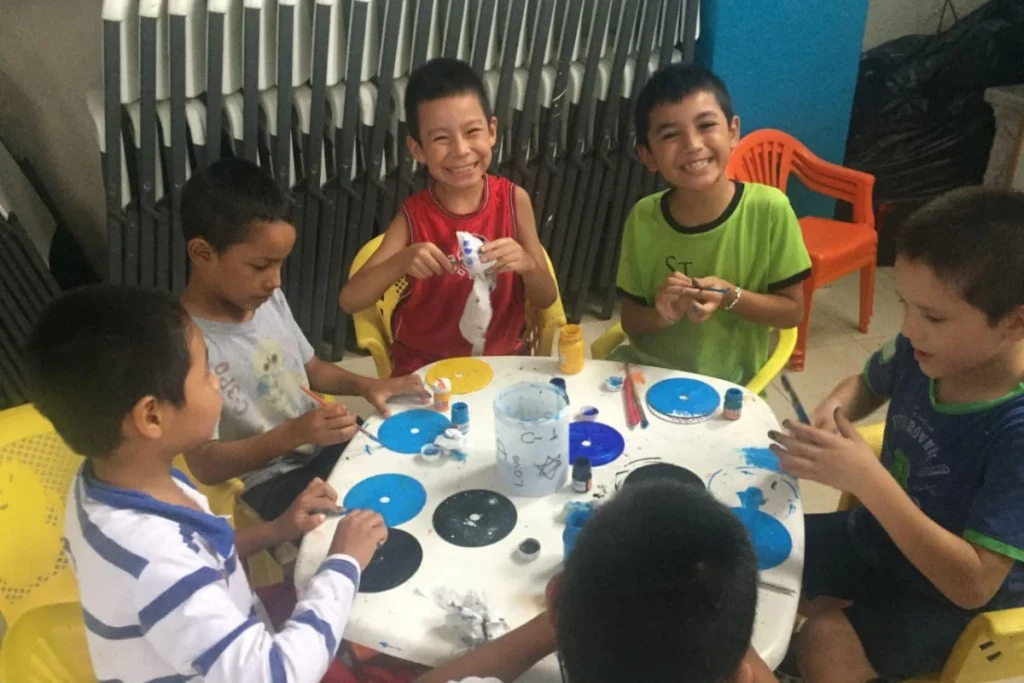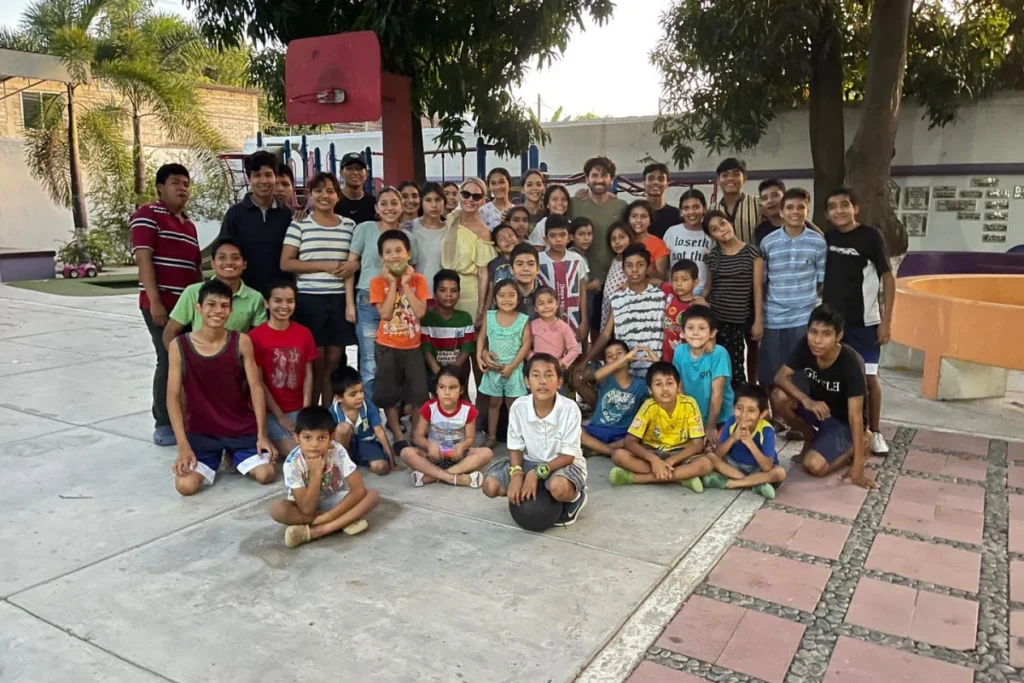Knowing the importance of nutrition for kids is crucial for their healthy growth and development. A healthy diet supports every part of a child’s well-being, including their immune system and ability to focus and learn. Essential nutrients like iron, fiber, and vitamin A play a key role. This guide will cover the basics of a balanced diet, highlight the nutritional needs of different age groups, and offer practical tips to help incorporate nutritious foods into a child’s daily routine. By focusing on these aspects, we help children adopt a healthy lifestyle that will benefit them for years to come.
The Basics of Good Nutrition for Kids
Good nutrition for children means having a balanced diet that includes all the important food groups. This helps them get the vitamins, minerals, and nutrients they need for healthy growth, development, and overall well-being.
Defining Good Nutrition
Good nutrition for children is based on similar principles as for adults but is adjusted to meet the unique needs of growing bodies. A healthy balance of diet and exercise, along with a supportive lifestyle, is key to good child nutrition. It’s important for children to start their day with a balanced meal, including whole grains and fresh fruits, to give them the energy and nutrients they need to thrive all day.

The Importance of Balanced Diets
A balanced diet for children includes a variety of foods from all the essential food groups: fruits, vegetables, grains, proteins, and dairy or its alternatives. This variety ensures that kids get the vitamins, minerals, and nutrients they need for growth and development. Including whole grains like oatmeal and brown rice, along with proteins such as beans, peas, and lean meats, supports this balance. Additionally, it’s important to limit foods high in sugars, saturated fats, and salt to maintain a healthy diet.
Key Food Groups
The five main food groups that make up a nutritious diet for kids are grains, dairy, proteins, vegetables, and fruits. Each group offers essential nutrients that support a child’s overall health. For example, vegetables and fruits provide vitamins, minerals, and fiber, which are important for good digestion. Proteins from sources like meat, poultry, beans, and nuts are crucial for muscle development and repair. Dairy products, or their alternatives, are necessary for bone health due to their calcium content.
Including these food groups in every meal helps children get the nutrients they need for their active and growing bodies. For instance, adding vegetables to breakfast omelets or having a fruit salad for dessert can make meals more nutritious and colorful.

Nutritional Needs for Different Age Groups
Nutritional needs for children vary by age group, with specific dietary recommendations for babies, toddlers, and preschoolers to support their growth and development.
Babies
From birth to around 6 months, babies should only have breast milk because it gives them all the nutrients they need. If breastfeeding isn’t possible, iron-fortified infant formula is a good alternative for the first year. As babies get closer to 6 months, they show signs that they are ready for solid foods, like sitting with support and bringing objects to their mouth. It’s important to start with foods that are easy to swallow to prevent choking, and to avoid foods like honey, which can contain harmful bacteria.

Toddlers
As toddlers grow, their diet should include a wider variety of solid foods to match their increased activity and development. They should stop using bottles and start eating the same foods as the rest of the family. Because toddlers have small stomachs, they need nutrient-dense foods without added sugars or too much salt. Parents should offer a variety of foods to meet their changing tastes and ensure they get a balanced mix of grains, proteins, fruits, and vegetables. Supervision during meals is important to prevent choking, and involving toddlers in meal preparation can help them become interested in trying new foods.

Preschoolers
Preschoolers continue to develop their eating habits and need encouragement to eat a healthy variety of foods. They should have a mix of fruits, vegetables, grains, proteins, and dairy or fortified soy alternatives. Regular meal and snack times help set a routine, and new foods should be introduced gradually. Preschoolers often imitate adult eating behaviors, so it’s helpful for parents to model healthy eating. Foods that pose choking risks or are high in sugar and fat should be limited to promote a balanced diet.
Benefits of Healthy Eating in Childhood
Healthy eating during childhood provides physical, mental, and long-term health benefits, reducing the risk of chronic diseases, enhancing cognitive development, and establishing lifelong healthy habits.
Physical Benefits
Healthy eating during childhood creates the foundation for lifelong health. It greatly lowers the risk of developing chronic conditions like heart disease, type 2 diabetes, obesity, and certain cancers later on. Nutrient-rich foods, such as fruits and vegetables, provide essential vitamins and minerals, and help build strong bones and teeth with nutrients like calcium and vitamin D. Additionally, a balanced diet with a variety of nutrient-dense foods makes it easier to maintain a healthy weight.

Mental and Cognitive Benefits
The impact of nutrition on children’s mental and cognitive development is significant. Studies show that diets rich in vitamins, minerals, and omega-3 fatty acids enhance cognitive functions and support brain development. For example, iron, found in foods like spinach and beans, is vital for cognitive development and learning abilities. Additionally, a healthy diet supports emotional well-being and can improve mood, which is crucial for children’s overall mental health.
Long-term Health Impacts
The eating habits formed in childhood have long-term effects. Children who start healthy eating early are less likely to have health problems as adults, including lower risks of serious conditions like heart disease and diabetes. A diet that includes a variety of whole foods can prevent nutrient deficiencies that might cause long-term health issues. Encouraging kids to make healthy food choices helps them develop habits that lead to lifelong health and wellness.

Conclusion
In this article, we’ve highlighted the important role nutrition plays in children’s health and development by covering essential food groups, the importance of a balanced diet, and practical tips for adding nutritious foods to a child’s daily routine. A healthy diet supports physical growth, immune function, cognitive development, and emotional well-being. By addressing the nutritional needs of different age groups, from infants to preschoolers, the guide lays the foundation for lifelong healthy eating habits. Encouraging a variety of healthy foods and involving children in meal planning can create positive lifelong eating habits, helping to reduce the risk of chronic diseases and promote overall health into adulthood. If you want to learn more about how you can support kids in need in Mexico, visit The Children’s Foundation International!
Children’s Foundation International (CFI) is dedicated to transforming the lives of children and families in need by providing comprehensive support and resources. With a focus on health, education, and community development, CFI strives to create lasting, positive change. Our programs are designed to address the unique needs of each community, ensuring that every child has the opportunity to thrive and reach their full potential. Through strategic partnerships and innovative solutions, Children’s Foundation International is committed to building a brighter future for children worldwide. To learn more about our mission and impact, visit tcfcares.org.




